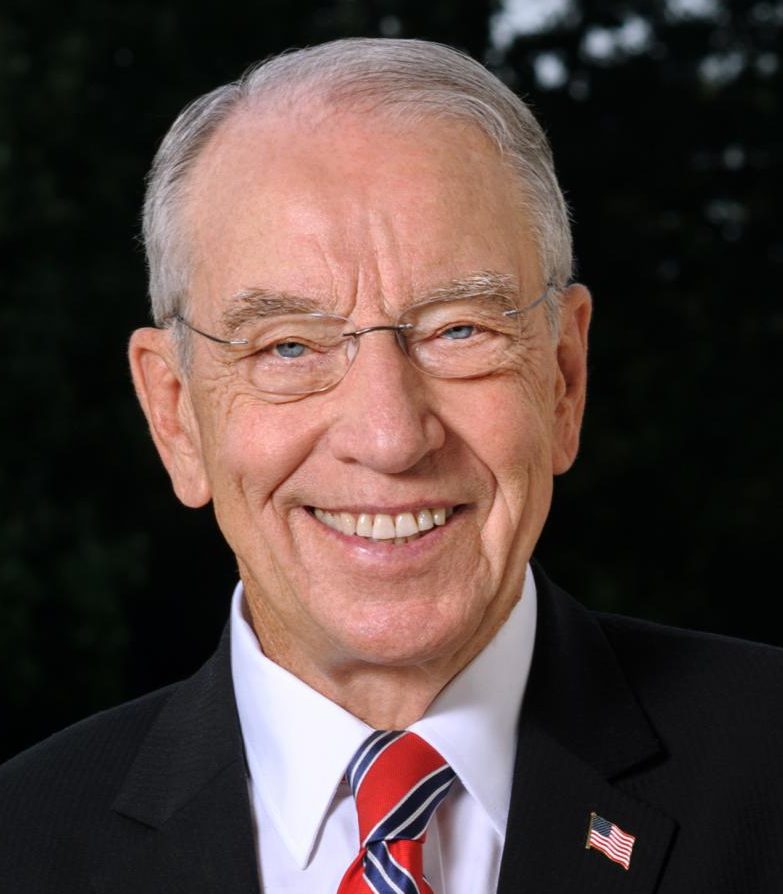***The Iowa Standard is an independent media voice. We rely on the financial support of our readers to exist. Please consider a one-time sign of support or becoming a monthly supporter at $5, $10/month - whatever you think we're worth! If you’ve ever used the phrase “Fake News” — now YOU can actually DO something about it! You can also support us on PayPal at [email protected] or Venmo at Iowa-Standard-2018 or through the mail at:
PO Box 112
Sioux Center, IA 51250
CARES Act takes bold action during the public health emergency (PHE) related to COVID-19 to assist patients and providers in rural areas that are being hard-hit by the pandemic.
Increases Access to Capital for Rural Providers
- Establishes a $100 billion fund to ensure health care providers, including those in rural areas, continue to receive the support they need for COVID-19 related expenses and lost revenue;
- Allows rural providers to seek relief through Small Business Administration programs, including the Paycheck Protection Program loans that can be forgiven, debt relief and economic injury disaster loans;
- Enables hospitals to receive an advance on Medicare payments—with Critical Access Hospitals (CAHs) able to secure up to 125%—to infuse needed cash-flow.
Provides Funding for Rural Health Centers and Programs
- Provides $1.32 billion in supplemental funding to community health centers (CHCs), including those providing care in rural areas;
- Extends mandatory funding for programs crucial to rural areas:
- Community health centers;
- National Health Service Corps (NHSC); and
- Teaching Health Center Graduate Medical Education Program (THCGME).
Increases Payments to Rural Providers
- Suspends the Medicare sequester to increase payments for rural hospitals and providers by 2%;
- Increases Medicare payment to a hospital for a COVID-19 admission by 20%, helping certain rural hospitals;
- Increases Medicare payments for physician services by not applying a geographic adjustment that hurts rural areas;
- Delays reductions in the portion of Medicaid payments to hospitals for treating low-income and uninsured patients;
- Prevents reductions in payment for durable medical equipment, including oxygen and wheelchairs, that disproportionately hurt rural suppliers;
- Prevents reductions in payments to clinical laboratories to ensure patients can get needed testing.
Increases Rural Telehealth Use and Infrastructure
- Allows Medicare beneficiaries to receive care in their home from a remote physician;
- Enables Community Health Centers and Rural Health Clinics to provide remote care to beneficiaries in their home;
- Allows beneficiaries on home dialysis to receive all required visits in their home from a remote nephrologist;
- Enables home health agencies to use technology, including remote monitoring, to deliver needed care;
- Allows physicians and nurse practitioners to recertify hospice care for beneficiaries via telehealth;
- Reauthorizes Health Resources and Services Administration (HRSA) grant programs that promote the use of telehealth technologies for health care delivery, education and health information services, including in rural areas;
- Extends HRSA rural health care services outreach, rural health network development and provider quality improvement grant programs to strengthen rural community health by focusing on quality improvement, increasing health care access, coordination of care and integration of services.
Increases Flexibility to Improve Rural Health Care
- Allows physician assistants and nurse practitioners to order home health services in Medicare and Medicaid, enabling patients to get quicker access to care in their home;
- Waives Medicare requirements to enable hospitals to efficiently transfer patients to an appropriate post-acute facility setting, freeing-up needed hospital beds;
- Enables Medicare beneficiaries to fill a prescription for up to 90-days to ensure they have an adequate supply of needed medications.
Offers Flexibility for Providers to Improve the Rural Response
- Establishes a Ready Reserve Corps to ensure there are enough trained doctors and nurses to respond to COVID-19 and other PHEs, including in rural areas;
- Makes clear that doctors who provide volunteer medical services during the PHE related to COVID-19 have liability protections so that they can provide care to those who need it, including in rural areas;
- Allows the Secretary of Health and Human Services to reassign members of the NHSC to sites close to the one to which they were originally assigned, with the member’s voluntary agreement, in order to respond to the PHE related to COVID-19.
















